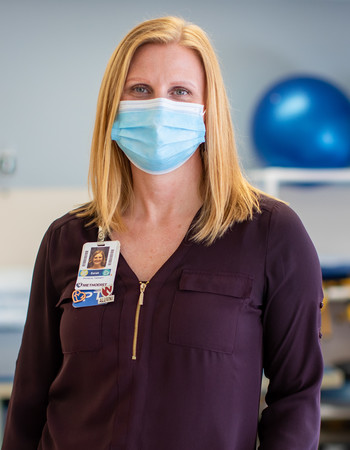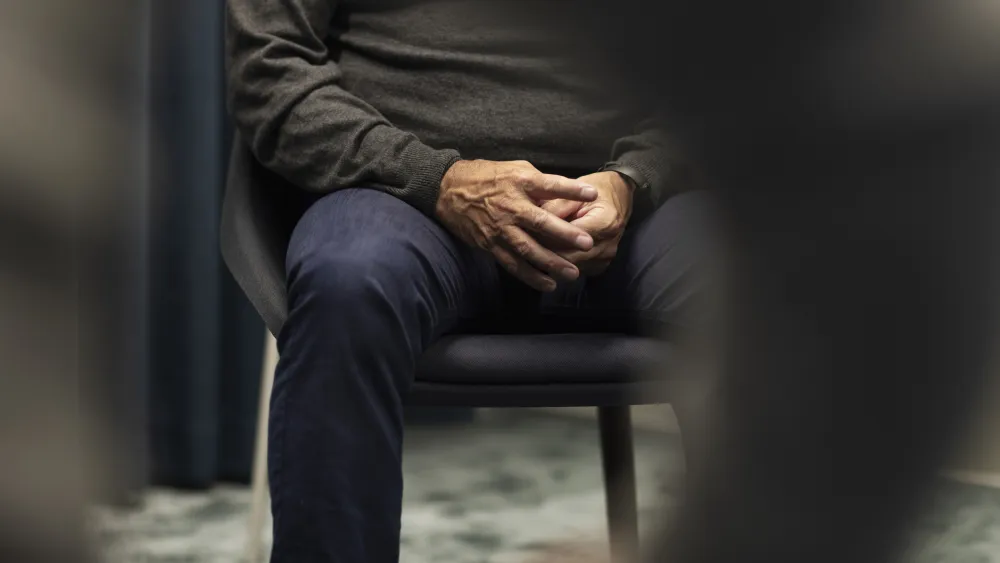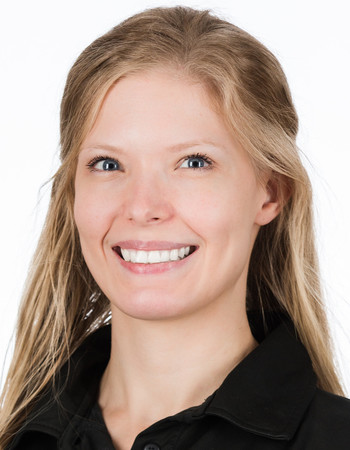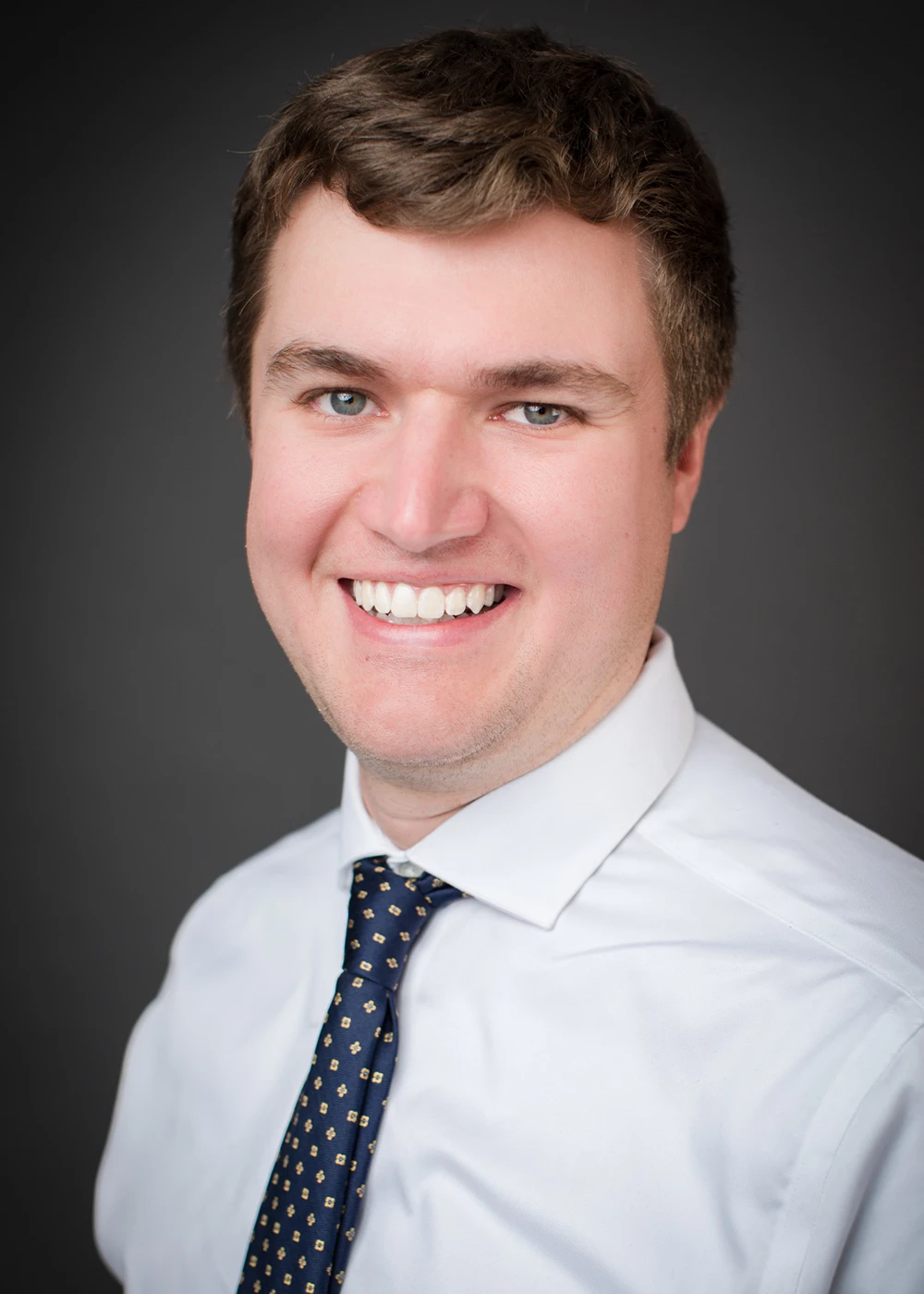
Inspiring Stories
Methodist Offers Stroke Survivors Hope With Much-Needed Support Group
Published: May 23, 2022

More than seven years after suffering a stroke on his 45th birthday, Mike Kirke is still adjusting to his new life. He misses doing yardwork. He continues to learn how to rely on his right hand after being left-handed. And he hopes that one day he won’t need his cane to get around.
“I haven’t given up, but there are many days when I want to just throw in the towel,” he said.
Mike knows that the care he receives from other people in his life, especially his wife of 29 years, Lisa, is one of the main reasons why he continues to push forward.
Another way he receives much-needed support is by attending the Methodist Stroke Support group that meets monthly at Methodist Hospital.
“The best therapy is being around all of them and trying to learn what they’ve learned,” Mike said.

“It’s so helpful for patients to know they’re not alone,” said Sarah Cockle, PT, DPT, Methodist Hospital’s service leader for therapy services. “Oftentimes it’s a reality check because you may be going through this, but your neighbor sitting right next to you might actually have it much worse. So sometimes it can really bring great perspective that there are some blessings among the tragedies. It’s pretty impactful for patients to just be around others and be able to share experiences.”
Learning From Others
Donnis Arens, a volunteer who serves as the stroke support group’s point person, enjoys listening to people’s stories – like how their stroke impacted their life or how they have found ways to adapt.
“A lot of people have their own thoughts about how to do things, but it’s important to listen to what others are saying,” said Donnis, who has been a part of the group for over 20 years and is a stroke survivor herself. “Really listening makes a difference.”
Donnis, who will turn 79 in June, helps coordinate speakers from within the hospital and the community to present to the group. Topics include ways the body can be affected by a stroke, how to combat the challenges that follow a stroke and how music or the weather can impact your mood. A member of Methodist’s therapy services team also attends each meeting to help facilitate activities and discussion.
Jamie Dethlefs, OT, primarily serves as Methodist’s facilitator for the group, while other therapists fill in as needed.
According to Donnis, in addition to learning about the ins and outs of strokes, the group is also about friendships and sharing stories.
“When you find someone that you have that little thing in common with, it helps open up the door to a lot of other things, and you never know how far that can go,” she said.
And sometimes those relationships extend beyond the monthly meetings.
“I’ve met one of my best friends there,” Mike said. “We talk all the time.”
In addition to stroke survivors, caregivers are welcome at the meetings. Five survivors and three caregivers attended the group’s most recent gathering this month at Methodist Hospital. It was the group’s first in-person meeting after two years of virtual meetings because of the COVID-19 pandemic.
“It was beautiful,” Donnis said.
Processing Change
In addition to the support group, stroke survivors are able to use other therapy services, such as outpatient speech therapy at Methodist Hospital, Methodist Fremont Health and Methodist Jennie Edmundson Hospital.

Kirsten Jorgensen, SLP, a speech therapist at Jennie Edmundson, works with survivors on a variety tasks such as swallowing, communication and memory retraining.
“After a stroke there can be a lot of deficits for people, and it can be hard to process those new changes, so I think it’s helpful when people come to therapy,” she said.
But Jorgensen knows that the rehab can be challenging.
“It can be a frustrating thing, and it’s usually hard work to try and fix the things that used to be easy,” she said.
Jennie Edmundson and Methodist Fremont Health also inform patients about the stroke support group at Methodist Hospital.
“There Is a Future for You”
One of the hardest things for many stroke survivors is realizing that there’s a lot to discover about moving forward with life.
“There are a lot of things that people don’t know and don’t really want to ask anyone,” Mike said.
But Methodist offers resources for survivors on their journey after suffering a stroke.
“I want to tell people: There is a future for you somewhere out there. You just have to find it and rebuild it. And a good place to start looking is at your hospital,” Mike said.
After many years of hearing a variety of stories, Donnis is amazed at the successes.
“It’s fascinating how some people have accomplished their goals by making a change and continuing to reach for a solution that works for them.”
More Resources
- Find out how you can get involved with the Methodist Stroke Support Group.
- Learn more about stroke treatment and recovery.
- Learn how to BE FAST and identify a stroke.


